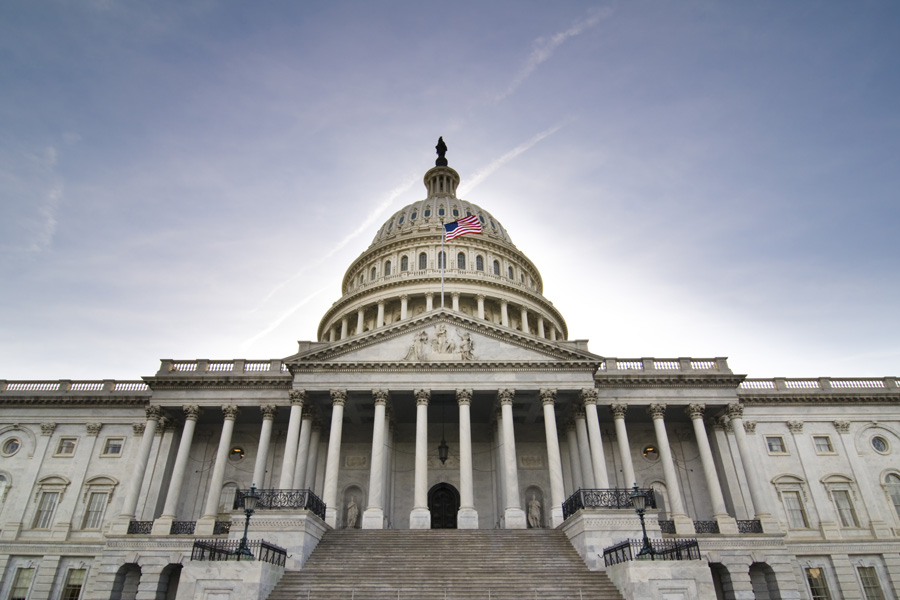
Criminal Justice Reform
On Friday, December 21, President Trump signed into law the First Step Act, enacting the most significant changes to the federal criminal justice system in decades. The changes include:
- Easing mandatory minimum sentences for federal offenses;
- Giving judges more discretion in sentencing offenders for nonviolent crimes, particularly drug offenses;
- Allowing inmates to get “earned time credits” by participating in more vocational and rehabilitative programs. Those credits would allow them to be released early to halfway houses or home confinement, helping to mitigate prison overcrowding;
- Requiring that inmates are placed closer to their families;
- Bolstering rehabilitation programs for former prisoners
While significant, it is important to note that the new law will not impact state or local systems that make up a great majority of America’s criminal justice framework.
Farm Bill
On December 12, Congress passed an $867 billion farm bill which authorizes funding for U.S. Department of Agriculture programs through the end of Fiscal Year 2023. The bill passed with broad bipartisan support in both the House and Senate, and President Trump is expected to sign the legislation soon. Among the important provisions for local government, the bill:
- Reauthorizes the Healthy Food Financing initiative, which helps eliminate food deserts;
- Provides mandatory funding for the Food Insecurity Nutrition Incentives program, a competitive grant program that provides low-income consumers with cash incentives that increase their purchasing power at farmers markets;
- Increases funding for SNAP job training programs from $90 million to $103.9 million annually;
- Creates a new USDA broadband grant program to encourage deployment of high-speed internet access to rural areas;
- Establishes a Rural Innovation Strong Economy (RISE) Grant program to assist rural communities with accessing seed capital and loans and leverage other rural business programs;
- Provides federal funds of up to $2 million per award to develop community-driven initiatives that promote rural entrepreneurship, redevelop Main Streets, and provide essential skills training opportunities for an innovation economy;
- Increases the maximum amount of financing for water and wastewater projects from $100,000 to $200,00, but decreases the overall authorization for the program from $30 million to $15 million per fiscal year;
- Strengthens the Rural Utilities Service Technical Assistance and Training Program.
Disaster Recovery Reform Act
The Disaster Recovery Reform Act (DRRA) was signed into law by Congress in October 2018, amending the Stafford Act. The law’s provisions shift more attention and federal resources to pre-disaster mitigation – actions taken before a disaster strikes that will lessen future impacts, reduce disaster costs, help speed recovery, and prevent the loss of life. Specific provisions in the bill of interest to local governments include:
- Reforming FEMA and the Stafford Act by ensuring that a percentage of assistance provided in the wake of disasters is invested in pre-disaster mitigation to allow state, tribal, and local governments to preempt damage and distress from future disasters;
- Clarifies what may be eligible for mitigation funding, making sure investments are cost-effective and low in risk;
- Speeds recovery by creating efficiencies in FEMA’s programs, such as getting structures inspected more quickly;
- Allows for higher rates of reimbursement to state, tribal, and local governments for their administrative costs when implementing public assistance (12%) and hazard mitigation projects (15%);
- Provides more flexibility in meeting disaster survivors’ housing needs.
ICMA partners with several organizations in its policy advocacy work on behalf of our members and the local governments they represent. The executive directors and policy staff from the “Big 7” associations representing state and local governments: the National League of Cities, National Association of Counties, U.S Conference of Mayors, National Governors Association, National Conference of State Legislatures, and the Council of State Governments, and ICMA meet monthly to discuss legislative, judicial, and regulatory issues of importance to their members. ICMA also participates in coalitions with the Big 7 and other state and local government organizations to bring its professional management voice into national policy debates and problem-solving discussions with federal government leaders. ICMA is also a member of the State and Local Legal Center, which prepares amicus briefs representing the state and local government perspective in Supreme Court litigation.
New, Reduced Membership Dues
A new, reduced dues rate is available for CAOs/ACAOs, along with additional discounts for those in smaller communities, has been implemented. Learn more and be sure to join or renew today!
